Volunteers
Discover Wiki Worlds – the many facets of Wikimedia volunteering
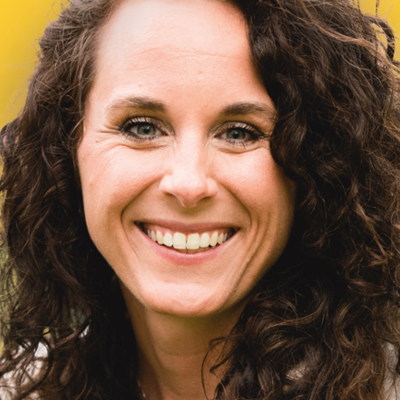
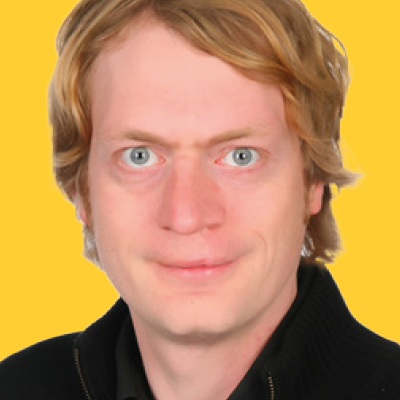
The Wikimedia projects thrive on the committed work of volunteers who invest their time to write and maintain Wikipedia articles, upload images under a free license to Wikimedia Commons or to enrich the free knowledge database Wikidata. Together, they help to ensure that more and more knowledge is available to us all. Precisely because volunteers work for free, one of Wikimedia Deutschland’s central concerns is to provide them with the best possible support: with funding opportunities for existing communities and with activities to attract new volunteers to Wikipedia.
Support and funding for Wikimedia volunteers – a comprehensive package
Volunteer support covers a wide range of financial and organizational support that volunteers can easily apply for. This includes working and networking meetings where joint editing takes place, new project ideas and initiatives are developed, and which are of course open to new volunteers.
“Wikimedia Deutschland covers travel costs for the participants, helps with the organization of rooms, public relations, catering and everything else involved in the implementation of such events,” explains Sandro Halank, Project Manager Volunteer Engagement at Wikimedia Deutschland. The content of the meetings is of course in the hands of the volunteers themselves.
»Wikimedia Deutschland covers travel costs for the participants, helps with the organization of rooms, public relations, catering and everything else involved in the implementation of such events.«
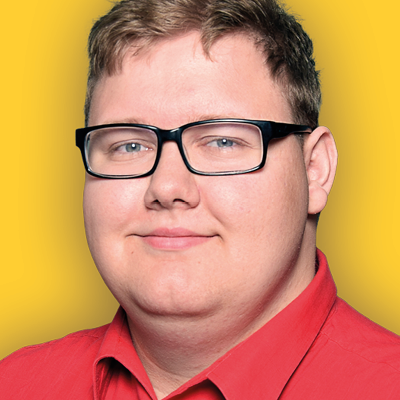 Sandro Halank
Sandro Halank
In addition to writing articles for Wikipedia, many volunteers are often out and about taking photos for the free media archive Wikimedia Commons, for example at concerts, sporting events or political events. The association provides technical equipment including cameras or lenses for this purpose. Wikimedia can also issue volunteering certificates. In many cities, these certificates grant discounted admission to cultural institutions where volunteers research articles.
The funding barometer shows satisfaction
In 2023, 256 projects with 2,111 participations were supported (multiple participations possible). Wikimedia provided 718 individual services, with travel expense reimbursement being by far the most frequently requested support. Since 2017, Wikimedia Deutschland’s Communities and Engagement team has been measuring how volunteers respond to the individual funding instruments using the Funding Barometer. It is a survey tool that continuously measures the overall satisfaction of those who receive the funds and the usefulness of the funding.
The aim is to achieve a score of between 9 and 10 points. The barometer shows the best values for 2023: overall satisfaction in the survey period up to November was 9.62 – based on a reliable sample group of 335 responses. In general, over 90 percent of the funding applications we receive are approved. It is important to us to make the services as accessible as possible. This is why we make it easy to submit applications for funding or cost reimbursements online via the Wikimedia Deutschland funding portal.
Extended offer in the Wikipedia Library
When researching their articles, another great help for Wikipedia volunteers is access to specialist literature that can be cited as a reliable source. The Wikipedia Library, set up by the Wikimedia Foundation, has existed for several years for this purpose. Volunteers can find a wide range of offerings from renowned scientific publishers and university presses in 34 languages, including industry giants such as De Gruyter and Elsevier. In 2023, two leading academic publishers, Mohr Siebeck and Nomos, joined as partners.
In addition to publishers who grant the Wikipedia community unlimited access to their content, there are also offers such as those from Zeit Online, which provide a certain amount of free access that volunteers can apply for. In 2023, Wikimedia Deutschland attended the Frankfurt Book Fair and other events to recruit more publishers to participate in the Wikipedia Library.
Local spaces: New arrival in Neu-Ulm
Although involvement in the Wikimedia projects is digital volunteering, the social component plays a major role. “We see this in the need for work and networking meetings, but also in the local spaces,” says Magdalena Horn-Costolloe from the Volunteer Coordination team. Wikimedia Deutschland provides financial, organizational and year-round advisory support to six of these spaces, where the communities meet in a self-organized way to exchange ideas and write together. The temporary house in Neu-Ulm was added in 2023. In a former combined sports & shopping center, the temporärhaus initiative – a group of digitally savvy people from the MakerSpace movement who are interested in Free Knowledge – shares two floors with the “House of Sustainability” association. A wealth of activities is on the calendar: from Maker Mondays and sewing workshops to the joint editing of data on the German Basketball League in the free database Wikidata (“Wiki loves Basketball”).
Another local space, Kontor Hamburg, was supported for the last time in 2023. From Wikimedia’s point of view, the funding requirements are no longer met, which was reflected on in a joint process with the local community. “Of course, we are happy to continue supporting local volunteers in their activities if they apply for funding,” emphasizes Claude Beier from the Communities and Engagement team.
Wikipedia on site: The local spaces in Germany
There are a total of six local community spaces across Germany that are supported by Wikimedia Deutschland: Lokal K in Cologne, WikiBär in Berlin, WikiMuc in Munich, Wikipedia Hannover, the FürthWiki-Laden and the temporärhaus in Neu-Ulm. The Wikipedia community meets on site to edit together, to offer workshops and introductory courses and many other events. Find out more here.
Recurring conferences and UNESCO contacts
In 2023, the three major conferences co-organized by Wikimedia Deutschland and supported by the communities were once again valuable for networking, the exchange between volunteers and the recruitment of new volunteers: WikiCon, the annual meeting of the German-speaking communities of Wikimedia projects, AdminCon as a specialist event for active and prospective administrators, and the FemNetz meeting, which is primarily aimed at FLINTA* Wikipedians and community members (women, lesbians, intersex, non-binary, trans and agender people).
WikiCon 2023 took place as a hybrid event in the Wissensturm in Linz, Austria. With 337 participants – 253 of them on site – it was the most popular WikiCon to date. A GLAM digital (Galleries, Libraries, Archives, Museums) station was also held in Linz with the German and Austrian UNESCO commissions to discuss aspects of intangible cultural heritage. “A topic that has long been at the top of the volunteers’ wish list,” reports Holger Plickert from the team Culture & Marginalized Knowledge at Wikimedia Deutschland. He describes networking with UNESCO as an important step for further cooperation. In collaboration with the German-speaking commission and the Museum for Sepulchral Culture, the Board of the Intangible Cultural Heritage Cemetery Culture and the Berlin Monument Authority, another GLAM event was held in September 2023 on the topic of “Wiki Loves Cemetery Culture”.
GLAM projects: Visibility for revolutionary women
A total of ten GLAM digital events took place in German-speaking countries in 2023. As Plickert states, “the format has now successfully established itself”. The events not only ensure that more and more cultural institutions are opening up to Free Knowledge and thus enriching Wikipedia and Wikimedia Commons with new content – they also create more diversity in Wikimedia projects.
This includes, for example, the station “Wiki Loves Revolution – a virtual exchange on the 1848/49 Revolution”, which took place in December 2023 in cooperation with the Archive of the German Women’s Movement and the Memorial for Freedom Movements in German History. The focus was on the women who contributed to the fight for democracy as journalists and writers or as fighters on the barricades, but up to now have hardly been mentioned in the Wikipedia articles on the 1848/49 revolutions and the Frankfurt National Assembly to date.
Plickert also emphasizes this: At two GLAM digital events in 2023, new collaborations with the museum associations of North Rhine-Westphalia and Mecklenburg-Western Pomerania were initiated. “Our long-term goal was to create a more close-knit network of the community and the regional museum associations and to expand our contacts – and we will continue to work on this in 2024.”
Drone flights and photo competitions
One of the GLAM events that had a particular resonance in 2023 was a GLAM on Tour stop at the Museum Barberini in Potsdam, highlighting provenance research as one of the topics. This resulted in 63 Wikipedia articles on Dutch painters alone as well as numerous new image descriptions and texts on exhibitions and museums. At the same time, a drone flight took place at this station, which generated photos of the Museum Barberini, the Potsdam Museum, the Brandenburg State Parliament and the St. Nicholas’ Church, for example.
Wiki Loves competitions increase image diversity
In 2023, the two largest wiki photo competitions, Wiki Loves Monuments (WLM) and Wiki Loves Earth (WLE), once again enriched Wikipedia and Wikimedia Commons with tens of thousands of photos under a free license. On the occasion of launching the national edition of WLM – in 2023 with an additional special prize for photos of cemeteries – 16,000 photos were uploaded to Wikimedia Commons under a free license. 10,000 images were added as part of WLE. The Wikimedia-sponsored award ceremony for both competitions took place in November at the Nicolaihaus of the German Foundation for Monument Protection in Berlin. High-ranking representatives from cultural heritage institutions, associations and politics sent greetings, including Berlin’s Governing Mayor Kai Wegner.
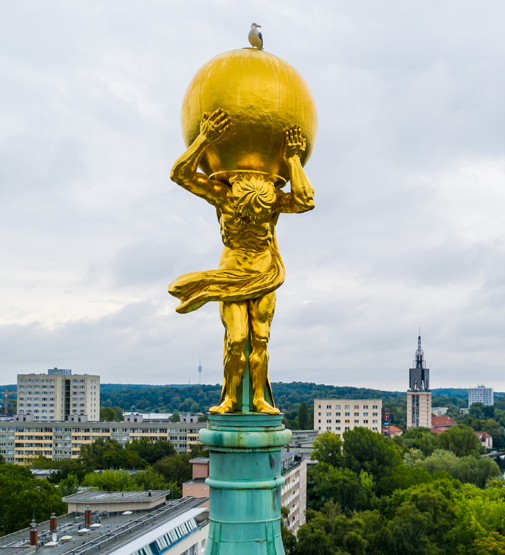
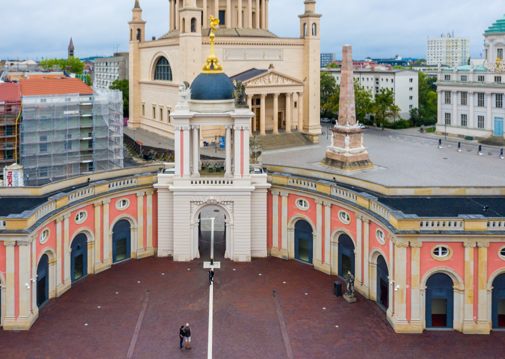
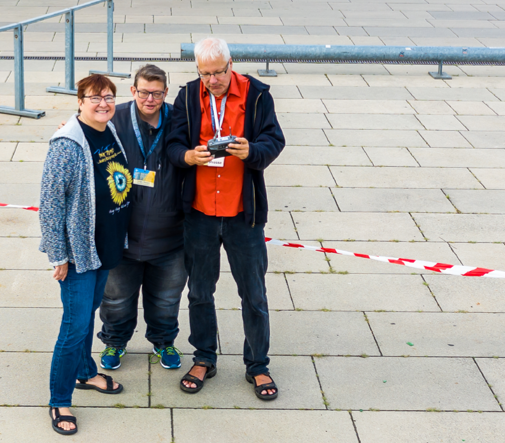
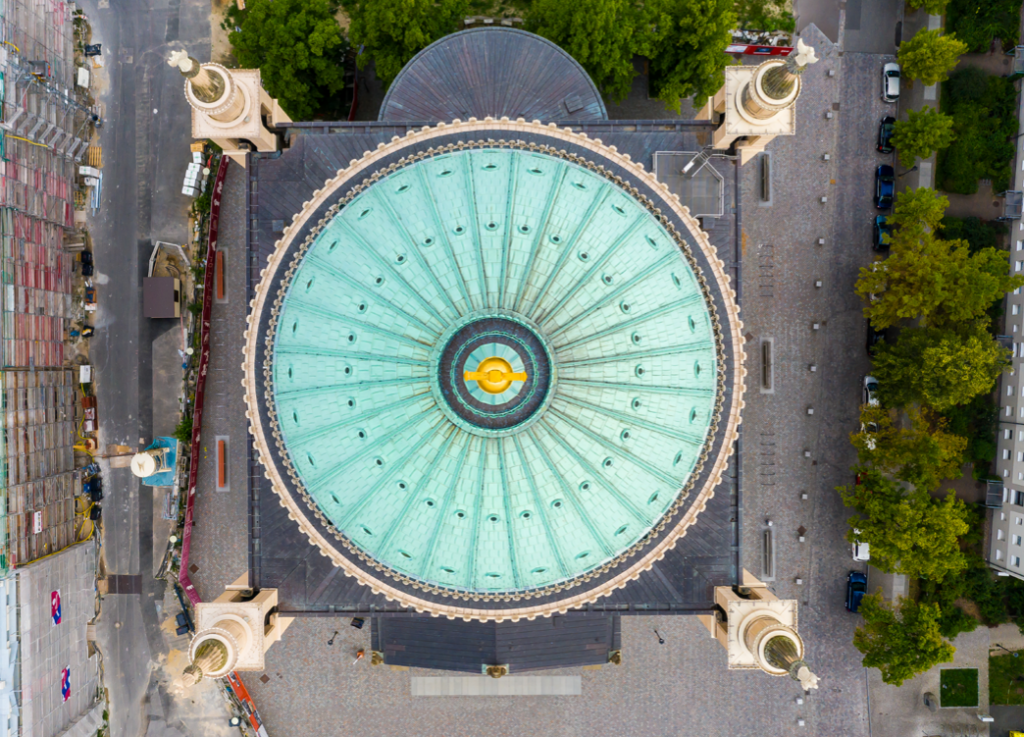
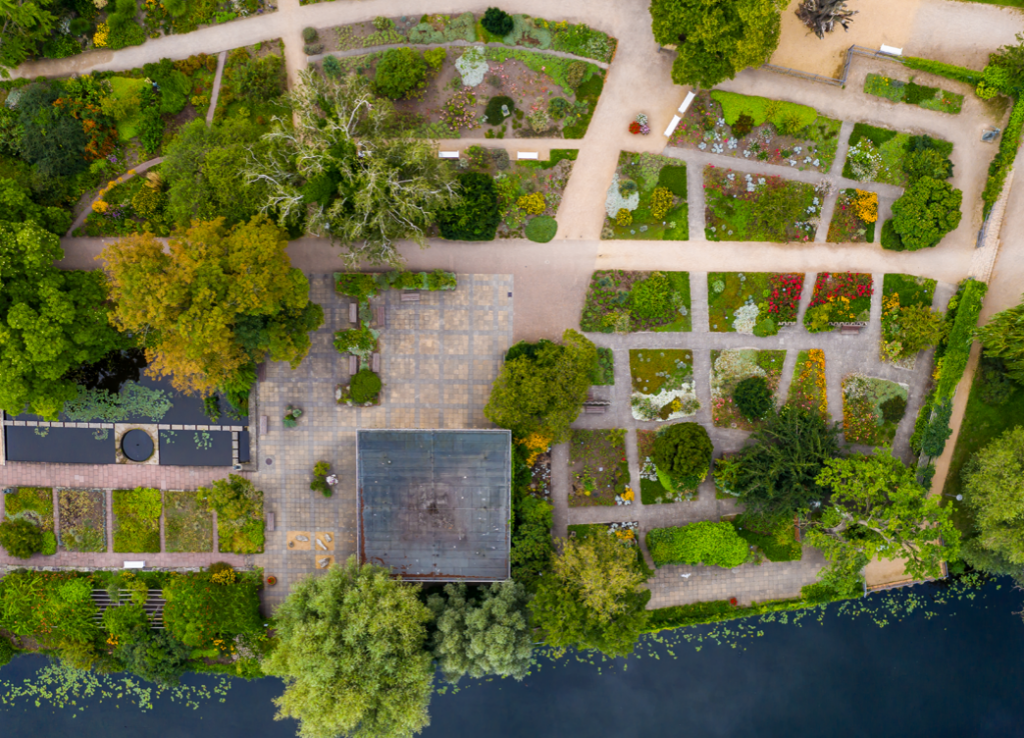
New paths, new active members: Wikimedia Germany’s contribution to a vibrant Wikipedia community
The Wikipedia community is a vibrant network of people who are passionate about sharing knowledge. To keep this network alive, it needs new committed members. With its “Living Community” strategy, Wikimedia Deutschland is committed to attracting new contributors and retaining them in the long term in order to strengthen the Wikipedia community. We made progress in 2023. Through digital induction formats such as the newcomer homepage, the promotion of community events for new target groups and innovative projects such as “Wikipedia on the move”, new active contributors were recruited and encouraged to think about a long-term commitment.
FLINTAstic and Jugend editiert – Encounters for knowledge and diversity
Personal interaction and direct contact with other active contributors are essential for integrating new members and new target groups into the Wikipedia community. In 2023, events such as “FLINTAstic” and “Jugend editiert” offered interested parties the opportunity to get involved locally and strengthen the sense of community within the Wikipedia community.
The newly launched FLINTAstic event series was created in cooperation with the America Memorial Library Berlin and was aimed at FLINTA* people. The focus was on topics relating to (queer) feminist art and working on Wikipedia. A total of 45 women took part in the six days of events, and two new collaborations were established. “I am delighted that we were able to bring together people interested in this topic,” says initiator Sandra Becker.
»FLINTA* artists and their art are part of our society. We want to help ensure that they receive the recognition they deserve in Wikipedia.«
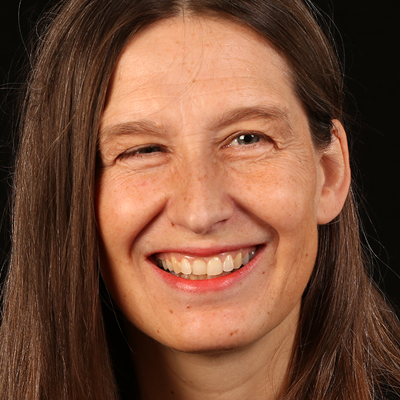 Sandra Becker
Sandra Becker
Young people are often highlighted as a key target group for the future of Wikipedia. They have grown up with Wikipedia and do not know a world without the online encyclopedia. With the Young Wikipedians, there is an organized group of young people under the age of 21 that serves as a point of contact for young people in Wikipedia. Since the summer of 2023, Wikimedia Deutschland has increasingly supported the event series “Jugend editiert”, which aims to attract young people to Wikipedia. At the monthly event in Berlin, young people up to the age of 25 can get involved in the local Wikipedia room, the WikiBear. A significant increase in the number of registrations has already been achieved in the first few months.
Successful launch of “Wikipedia on the move”
In 2023, Wikimedia Deutschland also took a significant step in the area of “Living Community” with the launch of the pilot project “Wikipedia on the move” in Kassel. This innovative format aims to integrate new authors into the Wikipedia community. The weekend brought together 21 committed people, including three newcomers and 18 Wikipedia contributors with viewer status and different levels of experience. The participants emphasized the value of personal exchange and the importance of this format for their work.
Welcome to Wikipedia – the newbie home page
Studies have shown that many people find it difficult to start contributing to Wikipedia, particularly for technical, conceptual or cultural reasons. To counteract this, the Wikimedia Foundation has developed its own newcomer homepage, which is displayed to everyone who has created a new Wikipedia user account. This special page offers suggestions for initial small tasks and a good introduction to Wikipedia as well as contact to personal mentors who can help with initial questions. These features verifiably improve the ease of getting started, the duration of active participation and the number of edits made by newcomers. With the help of interested community members, Wikimedia Deutschland managed to make the newcomer homepage accessible to all newly registered users of the German-language Wikipedia in 2023.
Become part of the Wikipedia community!
Would you also like to become active in Wikipedia and find out how the knowledge giant works? Then we recommend the 30-day Wikipedia challenge. In 30 emails with 30 missions, you will get a comprehensive insight into the world behind Wikipedia. Sign up for the challenge.
More visibility for marginalized knowledge – Wikimedia Deutschland launches re·shape funding program
With re·shape, Wikimedia Deutschland 2023 has launched a new funding program that aims to contribute to greater Knowledge Equity. It supports projects by people from marginalized, i.e. socially marginalized, communities whose perspectives are still underrepresented in Open Knowledge and should gain more visibility.
In order to reach the target groups affected by discrimination, Wikimedia is working on re-shape together with neue deutsche organisationen – das postmigrantische netzwerk e. V., an association of almost 200 associations, initiatives and self-organizations. In addition, an independent board of trustees consisting of Hajdi Barz, Juliana Kolberg and Victoria Kure-Wu supported the four-member Wikimedia program team in the conceptual direction of re-shape and the selection of funded projects.
“We have to and want to rethink a lot of things in this program,” explains Dominik Scholl, Head of Culture & Marginalized Knowledge at Wikimedia Deutschland. “It’s about giving the communities we work with as much self-determination as possible and also taking into account the risks that can arise when they share their knowledge.” This includes, for example, the question of how to deal with images that are published under a free license and used for propaganda or other abusive purposes.
»Which marginalized knowledge can find its way into the Wikimedia projects is a joint learning process for all those involved, in which we pursue the common goal of making the presentation of knowledge more balanced and fair.«
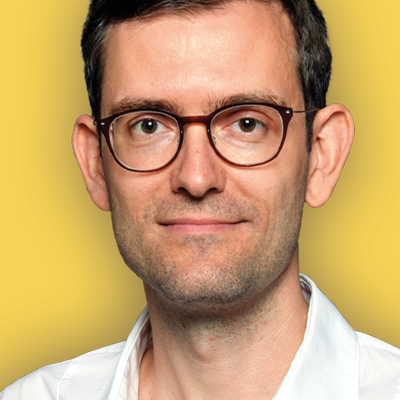 Dominik Scholl
Dominik Scholl
The response to re-shape was huge. 87 projects applied for the first round of calls, and the board of trustees and one representative each from neue deutsche organisationen and Wikimedia Deutschland selected ten projects to receive up to 5,000 euros in funding and mentoring. According to Scholl, the enormous response proves “that there is a need for a program like re-shape”.

